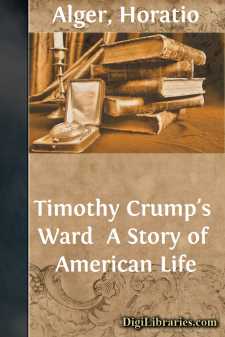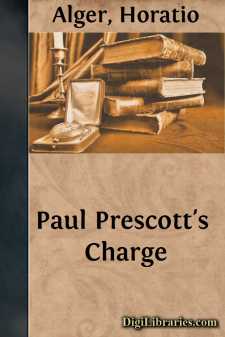Categories
- Antiques & Collectibles 13
- Architecture 36
- Art 48
- Bibles 22
- Biography & Autobiography 815
- Body, Mind & Spirit 144
- Business & Economics 28
- Children's Books 18
- Children's Fiction 14
- Computers 4
- Cooking 94
- Crafts & Hobbies 4
- Drama 346
- Education 58
- Family & Relationships 59
- Fiction 11835
- Games 19
- Gardening 17
- Health & Fitness 34
- History 1378
- House & Home 1
- Humor 147
- Juvenile Fiction 1873
- Juvenile Nonfiction 202
- Language Arts & Disciplines 89
- Law 16
- Literary Collections 686
- Literary Criticism 179
- Mathematics 13
- Medical 41
- Music 40
- Nature 180
- Non-Classifiable 1768
- Performing Arts 7
- Periodicals 1453
- Philosophy 65
- Photography 2
- Poetry 896
- Political Science 203
- Psychology 44
- Reference 154
- Religion 515
- Science 126
- Self-Help 85
- Social Science 83
- Sports & Recreation 34
- Study Aids 3
- Technology & Engineering 60
- Transportation 23
- Travel 463
- True Crime 29
Our website is made possible by displaying online advertisements to our visitors.
Please consider supporting us by disabling your ad blocker.
Try and Trust
by: Horatio Alger
Description:
Excerpt
CHAPTER I
AROUND THE BREAKFAST TABLE
"Well, wife," said Mr. Benjamin Stanton, as he sat down to a late breakfast, "I had a letter from Ohio yesterday."
"From Ohio? Who should write you from Ohio? Anyone I know?"
"My sister, Margaret, you remember, moved out there with her husband ten years ago."
"Oh, it's from her, is it?" said Mrs. Stanton, indifferently.
"No," said her husband with momentary gravity. "It's from a Dr. Kent, who attended her in her last illness. Margaret is dead!"
"Dear me!" returned Mrs. Stanton, uncomfortably; "and I am just out of mourning for my aunt. Do you think it will be necessary for us to go into mourning for your sister?"
"No, I think not," said her husband. "Margaret has lived away from us so long, and people won't know that we have had a death in the family unless we mention it."
"Was that all the letter said—about the death, I mean?"
"Why, no," said Mr. Stanton, with a little frown. "It seems Margaret left a child—a boy of fourteen; and, as she left no property, the doctor suggests that I should send for the boy and assume the care of him."
"Upon my word!" said Mrs. Stanton; "you will find yourself in business if you undertake to provide for all the beggars' brats that apply to you for assistance."
"You must remember that you are speaking of my sister's child," said Mr. Stanton, who, cold and selfish and worldly as he was, had some touch of decency about him, and did not relish the term "beggars' brats," as applied to one so nearly related to him.
"Well, call him what you like," said his wife; "only don't be so foolish as to go spending your money on him when our children need all we have. There's Maria needs a new dress immediately. She says all the girls at Signor Madalini's dancing academy dress elegantly, and she's positively ashamed to appear in any of her present dresses."
"How much will it cost?" asked Mr. Stanton, opening his pocketbook.
"You may hand me seventy-five dollars. I think I can make that do."
Without a word of remonstrance, the money was placed in her hand.
"I want some money, too," said Tom Stanton, who had just disposed of a very hearty meal.
"What do you want it for, Tom?"
"Oh, some of the fellows are getting up a club. It's going to be a select affair, and of course each of us has got to contribute some money. You see, we are going to hire a room, furnish it nicely with a carpet, black walnut furniture, and so on, and that'll cost something."
"Whose idea is it?"
"Well, Sam Paget was the first boy that mentioned it."
"Whose son is he?"
"His father belongs to the firm of Paget, Norwood & Co. He's awful rich."
"Yes, it is one of our first families," said Mr. Stanton, with satisfaction. "Is he a friend of yours, Tom?"
"Oh, yes, we are quit intimate."
"That's right!" said his father, approvingly. "I am glad you choose your friends so well. That's one of the principal reasons I have for sending you to an expensive school, to get you well launched into good society."
"Yes, father, I understand," said Tom....












